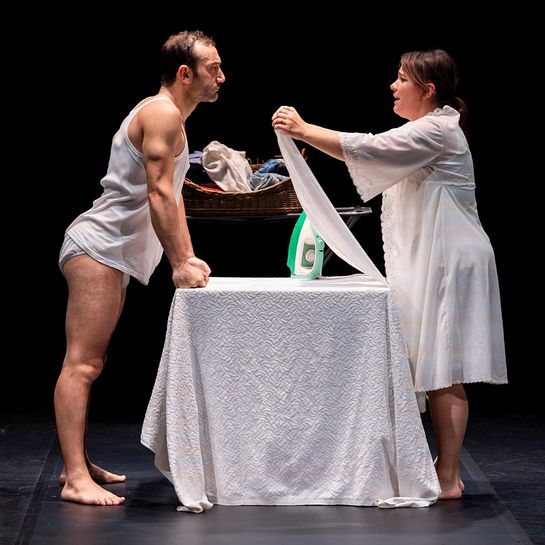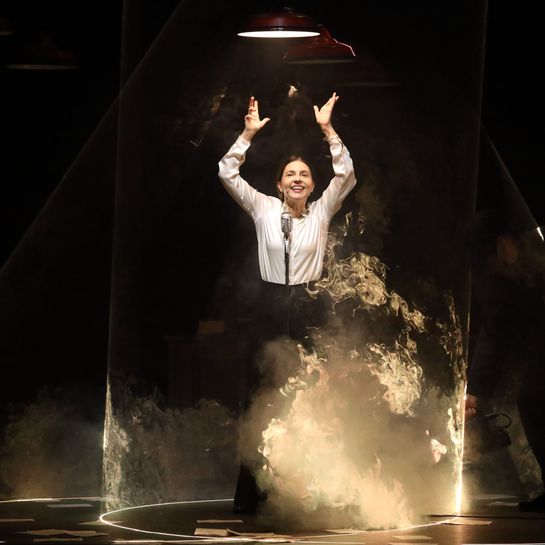Twenty-five years have passed since the publication of The Adversary, the novel with which the literary genius Emmanuel Carrère started the great adventure of documentary literature. It was the beginning of an artistic experience that banished metaphor and literary characters, in order to make the author's own ego emerge as the protagonist of the story, together with the lives of some exemplary men of contemporary history, reduced however to mere mirrors in which the author could reflect his own obsessions. From that novel onwards, theatre too decided to leave the 20th century, renouncing all those rhetorical, metaphorical and linguistic structures that dramaturgy had created in the last century. The great season of documentary theatre, of autofiction, began: performances in which real and political history came to replace the fiction of the author's story, and the performer, through his body and his real name, proclaimed himself witness to the story and guarantor of truth.
In these twenty-five years, we have been part of a real revolution, whose aim has been to put the relationship of sincerity between performer and spectator back at the centre of the theatrical experience. A democratic and participatory revolution. After the pandemic, however, something about that great revolution stopped working. Most probably the author/actor'sego had exhausted its function as the renewer of the stage, or perhaps it had simply realised that it had gone too far in the war against symbolic and metaphorical narration in favour of reality, forgetting the existence of a truth truer than reality, the truth of what is not seen and not heard, of what remains in silence, Hamlet would say: the truth of literature. Healing the wounds of the pandemic could only be her again, as it has always been, the pharmakon: the word embodied in the symbol that cures and poisons. With astonishing speed and precisely at the hands of those artists who had made their lives an inexhaustible source of scenic truth, the stages have once again been inhabited by characters born from the imagination of the author's pen (or should we say computer key), renewed, however, thanks precisely to the experiences of the last twenty years that have at least had the merit of sending the concept of theatrical tradition into crisis. This is why I decided to name this year's season Parallel Lives, recalling that first, enormous attempt by Plutarch in the early years of the 2nd century A.D. to romanticise the biographies of illustrious Greek and Roman men, to emphasise the need of both artists and spectators to make human life an instrument that only literature can transform into an example, a warning, a metaphor and a symbol. The creation of a new pact of trust with the literary word. Many novels will be brought to the stage this year, from Madame Bovary by Gustave Flaubert to Orlando by Virginia Woolf, from The Lady of the Camellias by Alexander Dumas son to The Little Prince by Antoine de Saint-Exupéry, to I miei stupidi intenti by the young Bernardo Zannoni. An ancient yet new way of reading the human and the present. Of course this return to the novel is necessary for artists to mend wounds and give comfort and meaning to everyone's pain and fears, but a doubt arises: won't this also be a commercially convenient choice to fill the theatres, since novels, even contemporary ones, are much more popular than dramas? While waiting for a sincere answer, let us enjoy this new theatre season, which I have designed with great love and care for the Lugano audience.
- Carmelo Rifici, Artistic Director Performing Arts




















